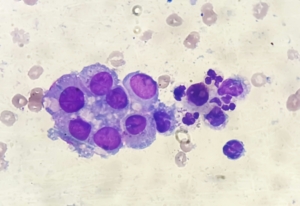
When science makes you smile
Hello readers! You know, when you view the biotechnology landscape from a Brussels perspective, you can very easily get stuck looking at the bad bits meddling politicians, poor science reporting, insane funding decisions. Goodness knows I have had to solve the euro crisis already this year, and most months I have something or other to moan about.
But no more. I was recently reminded of all the joy that science can bring. In fact, I had a grin on my face afterward for the rest of the day. Certainly takes your mind off explaining to your mother that hand cream doesn’t make you go blind, and that GMOs probably won’t turn you into a zombie.
I am referring, of course, to the Ig® Nobel Awards (www.improbable.com) a cele-bration of ridiculous but excellent science, where the prizes are handed out by bemused Nobel laureates and where, if you outstay your welcome speech, a child shouts that you are boring. 2012 was no exception, as Europe demonstrated again that it leads the world in mad science. Not all of the winners were from biotech fields, but I want to share my favourites with you anyway because they will remind you of how much you love what you do. European researchers featured in most prizes, so we can be proud of the contribution we make to science that makes you smile.
When next in Paris, remember that leaning to the left can make the Eiffel Tower seem smaller. Scientists from the Erasmus University Rotterdam delivered this stunning revelation for the Psychology Prize. And how many tourists will be at an angle next time they visit?
My second favourite was the Neuroscience Prize, which demonstrated that, using complicated instruments and simple statistics, researchers can see meaningful brain activity anywhere even in a dead salmon. How often have I thought that in a queue for train tickets, where the person holding it up at the front is clearly dead but exhibiting signs of life?
The forces that shape and move a pony-tail was an awesome one for the Physics Prize a joint effort from Unilever UK, the Cambridge University and the University of Warwick for that. Thanks boys!
The Anatomy Prize was also highly relevant, with research suggesting that chimpanzees can recognise each other from photos of their rear ends. Indeed, there are some distinctive backsides in Brussels, although I could not possibly comment on who they are.
Finally, French researchers played a blinder for the Medicine Prize, with work on minimising the chances of patients exploding during a colonoscopy. That was a weight off my mind and my large intestine.
The point of the Ig Nobels is that science is fun, not boring, and everything is relevant. Europeans helped fuel technological development through scientific investigation. And if your kids ask more questions after hearing about these prizes, then we are still pursuing just the kind of research we need.


 Unsplash+
Unsplash+
